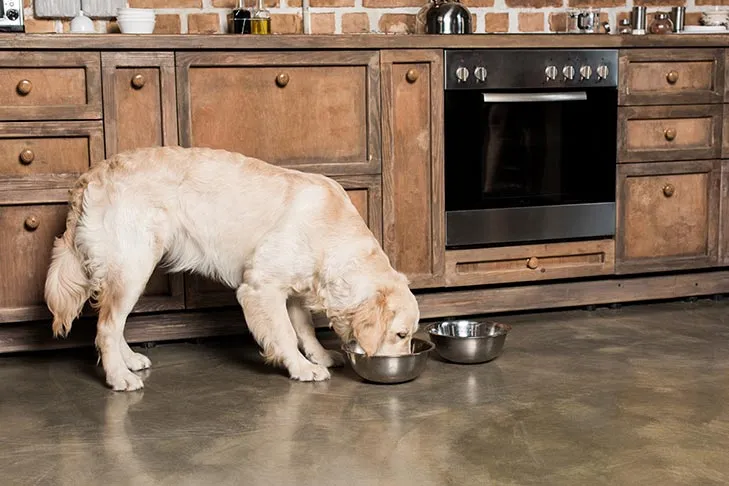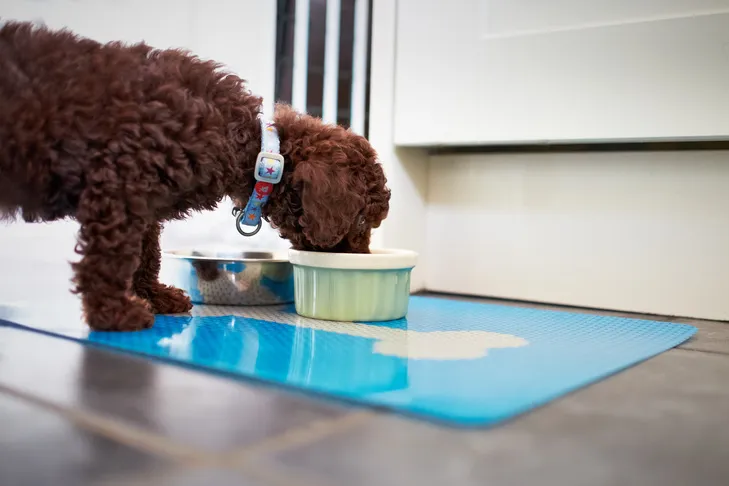Dog nutrition often raises questions for pet owners, especially when considering what dogs can and can not eat from human foods. Is cooking homemade meals truly superior to commercial dog food? Many sources promote it, but veterinary experts urge caution. Jennifer A. Larsen, DVM, MS, Ph.D., and Joe Bartges, DVM, Ph.D., board-certified veterinary nutritionists from the American College of Veterinary Nutrition, share insights on the realities of preparing food for your dog at home. They emphasize balancing benefits with risks to ensure your pup’s health.
While homemade diets appeal to those seeking control over ingredients, there’s no scientific evidence proving they’re better than quality commercial options. Dr. Larsen notes that claims of superiority often stem from pet food industry myths rather than facts. Commercial foods are formulated to be complete and balanced, meeting AAFCO standards for essential nutrients. However, they can feel monotonous, like eating the same processed meal daily. Homemade cooking allows variety with whole foods, which supports long-term health.
Reasons to cook for your dog include customizing for picky eaters, addressing food intolerances, or avoiding recalls. It also builds a stronger bond through shared mealtime prep. Yet, success hinges on knowledge—poorly planned meals can harm more than help.
Should You Cook Your Dog’s Food?
Cooking for your dog isn’t inherently better, but it offers control over your dog’s diet. Dr. Bartges compares commercial kibble to repetitive human fast food, lacking excitement but ensuring nutrition. Whole ingredient diets shine for palatability and quality, appealing to owners worried about processing.
Still, fearmongering about commercial recalls overlooks their rarity and regulations. Dr. Larsen stresses evidence-based choices: homemade works if balanced, but most owners lack the expertise. Puppies, seniors, or dogs with health issues need tailored nutrition—consult a vet nutritionist first.
 Golden Retriever eating from bowls on the kitchen floor.
Golden Retriever eating from bowls on the kitchen floor.
Common Mistakes When Cooking for Your Dog
Many owners dive into recipes without guidance, leading to pitfalls. Here’s what to avoid for safe, nutritious homemade dog food.
Using Untrusted Recipes
Generic online or book recipes often fall short. Studies show most are unbalanced, causing nutrient deficiencies or excesses. Dr. Larsen warns of “nutrition experts” without credentials—stick to vet-approved sources like BalanceIT.com for customized plans. Always verify with a board-certified professional.
Skipping Balanced Nutrition
Dogs require about 40 essential nutrients in precise amounts. Imbalances lead to malnutrition, obesity, or worse. Dr. Larsen explains: deficiencies impair body functions subtly or severely, while excesses like too much calcium harm bones. Monitor weight, coat, energy, and stool—adjust under vet supervision.
When discussing safe additions like human foods, reference guides on what human food can bulldogs eat to avoid risks.
Mixing Multiple Recipes for “Balance”
Combining recipes doesn’t fix shared flaws, per Dr. Larsen’s research. Many lack key vitamins or minerals—create one solid, individualized plan instead.
 Poodle puppy eating from a bowl in the kitchen.
Poodle puppy eating from a bowl in the kitchen.
Incorporating Unsafe Ingredients
Toxins lurk in everyday foods: chocolate, xylitol, avocados, grapes, raisins, onions, garlic, and macadamia nuts top the list. Even non-toxic excesses matter—high-fiber grain-free diets link to dilated cardiomyopathy. Check resources like what can dogs eat and what can they not eat or what not to feed your dog chart for clarity. For pups, see what can i give a puppy to eat.
Ignoring Recipe Details
Vague instructions invite errors in meat choice or supplements. Don’t improvise—query a nutritionist on swaps.
Overlooking Transition Impacts
Sudden changes stress digestion. Factor in age, breed, activity, and history. Track health metrics post-switch for adjustments.
Alternatives to Full Home Cooking
Time-strapped owners can opt for pre-cooked commercial meals with whole ingredients—nearly as fresh without the hassle. Dr. Bartges calls it “very close to cooking.” Prioritize your dog’s needs over trends.
In summary, cooking for your dog rewards effort with variety and customization but demands expertise to avoid dangers. Consult veterinary nutritionists for balanced recipes, steer clear of toxins, and monitor closely. Your pup thrives on science-backed nutrition, whether homemade or commercial. Explore more tips on our site for happy, healthy dogs!
References
- American College of Veterinary Nutrition (acvn.org)
- AKC Expert Advice on Dog Nutrition (akc.org)
- BalanceIT.com for recipe balancing
